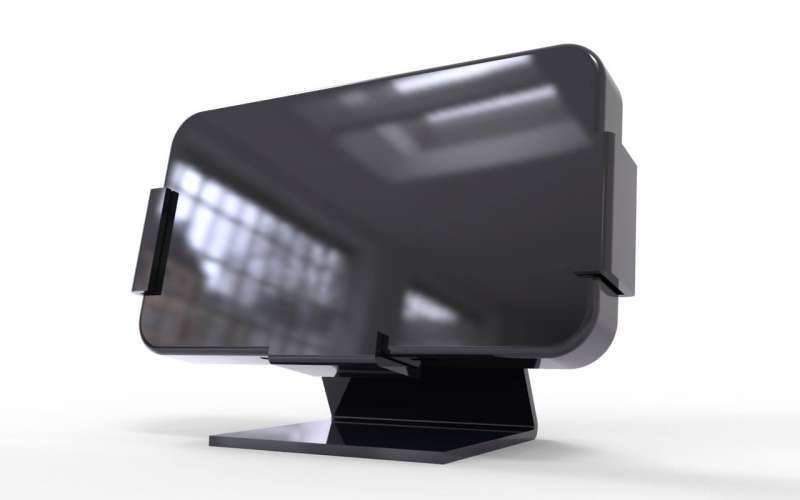September 7, 2017 weblog
Monitor tracks heart, respiratory rates of elderly living on their own

(Tech Xplore)—A scenario that is altogether contemporary in the broader cradle-to-grave journey: An elderly parent, over 65 years of age, functions independently, and lives alone. The fact is also that in his or her senior years there is the possibility of a medical emergency and the adult children would want to know.
Welbi is trying to step into the picture as a heart rate monitor for home monitoring. It measures heart and respiration rates and displays this information via a mobile app for family members.
The unit sits unobtrusively in the room and continuously monitors via scanning the room with radar. It can do its work regardless of the person's position or clothing. It is designed to connect to a cloud and mobile app.
The unit has a USB power setup. Room calibration is initialized by computer. As for range, the Welbi works within one room.
A promotional video showed how low-power radar is used to measure the heart and respiratory rates within range of the transmitter.
After 30 seconds of data capture, the computer algorithm processes the information and returns the measured heart and respiratory rates.
Fast Company expanded on how this works, quoting the company CEO, Jeff Nosanov:
"It's just like radar that police use to see how fast you're going, when the signal bounces off a car and can tell you how fast it's moving," he says. "That's what we're doing, but with the surface of the body."
Fast Company's Adele Peters said, "As the radio frequency signal shines on someone's body, it reflects back differently depending on how the body is expanding and contracting with each breath or heartbeat."
Peters added, "After the device collects 30 seconds of data, an algorithm processes it to deliver back a heart rate and respiratory rate, and that information is sent to the cloud."
At any time the person's relatives can open the Welbi app on their smartphones.
V-Sense Medical Devices is the company behind Welbi and has announced a Kickstarter campaign to move it along. They have an early bird price posted as $249 with estimated delivery in June 2018.
The press release described the company as founded by former NASA engineers and project managers.
CEO Jeff Nosanov worked at NASA JPL for five years, leading advanced concept projects. The low-power radar used is safe and unobtrusive, said Nosanov, in a video.
Hector Del Castillo, CTO, posted a video on the product in July.
Promoted as "the future of personal health monitoring," this is a product that highlights advantages in what it does not have as well as it what it does. It is digital and touch-free. No need to wear anything—no armband, no wrist bracelet, no chest strap, no leads, no wires.
As important, the elderly person is allowed to live independently for as long as possible, and there is no need to change their behavior or routine in any way just because of the monitoring.
The team walks site visitors through what this device can measure.
"The rhythmic beat of the heart produces a millimeter-scale movement of the surface of the body that is invisible to the human eye. The sensitive Welbi radar measures this movement to determine heart rate.
As for respiratory rate, "Breathing produces a centimeter-scale movement that is visible to the human eye. The Welbi radar measures this, distinguishes it from the smaller heartbeat-induced movement, and reports respiratory rate."
Lastly, "The timing between individual heartbeats is an important clinical factor for early detection of numerous clinical problems. The Welbi radar measures this variability and its change over time."
More information: www.kickstarter.com/projects/w … act-vital-sign-monit
© 2017 Tech Xplore
















